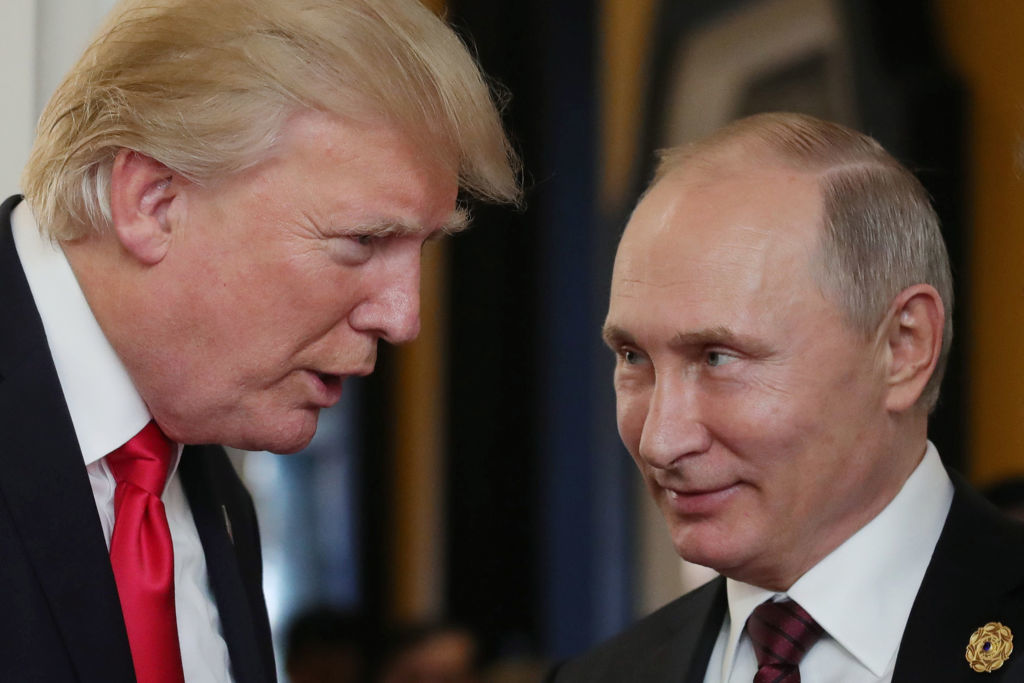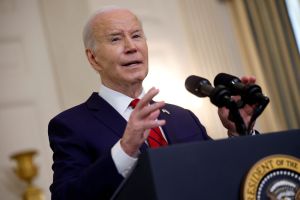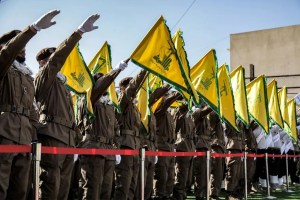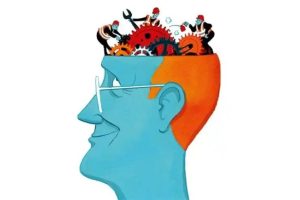NATO once feared the spectre of Soviet divisions rolling through the Fulda Gap. Military and civilian leaders spent restless nights worrying about Russia’s nuclear arsenal, its bloody-minded intelligence services, and its endless desire to erode the leadership, morale, and capabilities of the West. Today, they fear Donald Trump is about to throw them to the Russian wolves out of pique, spite, and a curious loyalty to Vladimir Putin.
For two generations the annual NATO summit had a particular and vital purpose. They began as careful, crafted exercises designed to develop the capacity and resolve of the West to stand against Soviet aggression, and then subsequently evolved as a check against post-Soviet misbehaviour and instability. These NATO summits were the public face of a strategic alliance built initially from necessity, then for mutual security and benefit. In the age of terror, the NATO alliance has stood together to face new threats as the bloody hand of twisted Islamic radicalism touched both sides of the Atlantic.
America has always had differences with our allies, on matters both meaningful and trivial, but in the past, those differences were mainly over technicalities, margins, and details. Western institutions like NATO bring together nations who share a broad set of Western values that, to some, may seem quaint today: a robust defence of free markets, individual liberty, and human rights. We don’t have to agree on everything, because we agree on the fundamental things.
No longer. NATO leaders may have had their doubts from time to time about American Presidents’ seriousness, intellectual heft, or domestic political strength. Until now, however, not one of them believed the American President actively sought favour and approval from the leader of totalitarian Russia. Until now, they never thought that an American President would put pleasing a Russian strongman over the values, peoples, and nations of the NATO alliance.
They have never seen an American President more eager to be intimately closeted with the Russian leader rather than to meet, take the counsel of, and show solidarity with his NATO allies. Donald Trump’s nationalist swagger, his nickel-and-dime protection-racket rhetoric over European defence commitments, and his flirtation with authoritarianism are bad enough. Our strategic partners and allies always believed at some deep, fundamental level that the American President was one of their own – a big, powerful cousin who they could count on when the chips were down.
Those days may soon end. NATO’s leaders have witnessed Trump’s endless, callous stream of juvenile insults and provocations to the nations who have stood by our side for over 70 years. They have seen his threats to destroy the alliance over either minor or imagined disparities in defence commitments. They recognise something is missing in Donald Trump’s mental and moral makeup, primarily an appreciation for the values of the West and the bonds of loyalty we shared for 70 years.
It isn’t merely the Western, democratic values expected of American presidents that are missing in action. Despite his relentless self-aggrandisement as the greatest negotiator who ever lived, NATO leaders have never seen an American President this battered by self-inflicted policy failures since the Vietnam War. They see his futile global trade war for what it is – a coming economic disaster. A month ago, the American President gleefully shredded the economic and political alliance of the G-7 on his way to a buddy-weekend with a pudgy, murderous dictator Kim Jong-un. He spun it as the most significant diplomatic victory of our era.
This week, Trump will arrive at the summit with the stink of his failed back-of-the-envelope nuclear deal with North Korea hanging heavy in the air. Far from winning a Nobel Prize, Trump can claim no laurels from the inevitable, utterly predictable North Korean betrayal. His sloppy, reality-television version of nuclear negotiations has left European leaders reeling. Even those NATO and European leaders who went out of their way to avoid antagonising Trump now see how the schoolyard bully came away from the Kim fight with a bloody nose and two black eyes. They know Putin better than Trump knows Putin, and they have every expectation that Donald Trump is going to to get rolled.
Western alliance leaders rightly doubt that Trump has the bottle to handle Putin. Just this week, they most certainly took notice of one particularly odd and cavalier Trump line, “‘Will President Trump be prepared, you know, President Putin is KGB’ and this and that. You know what? Putin’s fine. He’s fine. We’re all fine. We’re people. Will I be prepared? Totally prepared. I’ve been preparing for this stuff my whole life.” No one believes that, particularly not the Russian leader.
On the eve of this upcoming NATO Summit, the picture is grim. Western governments, intelligence services, and military leaders recognise Vladimir Putin’s special warfare model successfully undermined America’s democracy, elected Donald Trump and helped engineer the Brexit campaign is now a weapon pointed at them. They see Putin shaping the political battlefield in Europe at will, and wonder when American leadership will wake up to the threat.
If Donald Trump were a typical American President, he wouldn’t have to think it through. He wouldn’t make this a choice between Putin and NATO. There wouldn’t have been a scenario where Barack Obama, George W. Bush, Bill Clinton, George H.W. Bush, Ronald Reagan, or Jimmy Carter would have even entertained such a thought. They differed – sometimes broadly – on policy detail, but not on the fundamental necessity for a United States that displays steady leadership in a web of alliances, both economic and military.
Fear has replaced confidence in American leadership. An American President who distrusts dislikes, and disrespects NATO and our allies will be winging his way to Europe this week with an agenda that is opaque to all but two men: Donald Trump and Vladimir Putin.
NATO summits of the past were public displays of strength and determination, and events where private negotiations resolved tensions behind closed doors. The fear in the hearts of many is that Donald Trump is determined to display loyalty to a Russian dictator, at the cost of destroying an alliance that has helped keep the peace for 70 years, and that Trump’s strength is bent to the will of Vladimir Putin.


















